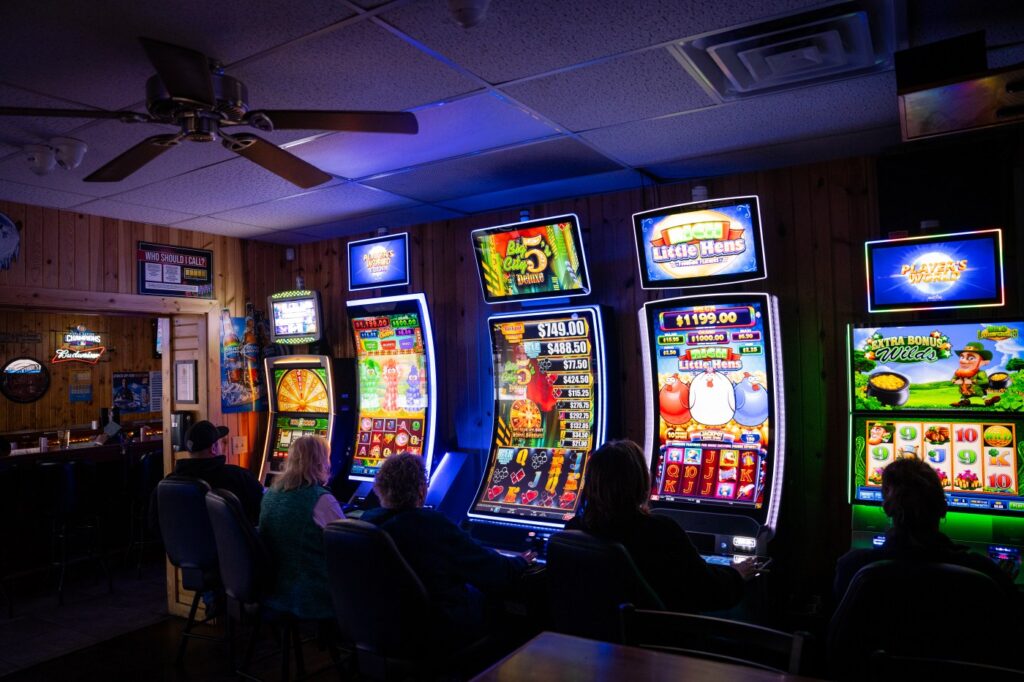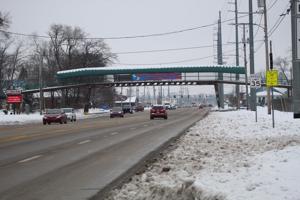
UPDATE: Chicago’s neighborhoods could soon see a surge in video gambling machines as aldermen discuss legalizing them in bars and airports. Ald. William Hall is at the forefront of this urgent push, aiming for legalization by next year to help alleviate the city’s budget crisis. This proposal faces hurdles, including a competing ordinance focusing solely on O’Hare and Midway International Airports, and skepticism from Mayor Brandon Johnson’s administration.
During a recent Revenue Subcommittee meeting, city finance officials revealed a study assessing the financial implications of this move. Chief Financial Officer Jill Jaworski warned that under the current state tax structure, the expected revenue from these machines may be disappointing, estimating a possible gain of $10 million in one year, followed by a loss of $5 million the next.
The analysis by Christiansen Capitol Advisors, LLC suggested that while legalization could generate some tax revenue, it might also divert funds from Bally’s Casino, which contributes approximately $4 million annually to city coffers. Consultant Sebastian Sinclair emphasized that this could lead to job losses—up to 400 positions at the casino—while the overall financial impact on the city would be minimal, potentially resulting in a net gain or loss.
Questions about the revenue-sharing agreement have left some aldermen frustrated. “We’re here to talk about revenue, and you guys don’t have numbers. This is crazy,” exclaimed Ald. Jason Ervin, highlighting the urgency of finding a viable financial strategy.
Notably, many bars, restaurants, and gas stations in Chicago already operate unregulated “sweepstakes” machines, which offer non-cash payouts. Ald. Felix Cardona pointed out that legalizing video gambling terminals could also allow the city to ban these machines, which are currently siphoning off revenue.
In contrast to the conservative estimates from the Mayor’s office, Ald. Hall claimed that legalization could yield as much as $48 million in tax revenue and an additional $291 million for the state. He argued that this financial opportunity is too significant to ignore, stating, “How can we walk away from that type of money?”
Meanwhile, Ald. Gilbert Villegas proposed a more limited approach, advocating for the legalization of video gambling only at the city’s airports. He described it as the “low-hanging fruit” in the ongoing discussions and assured that it wouldn’t detract from casino revenues. “It’s not a billion-dollar solution, but it’s moving in the right direction,” he said.
As negotiations continue, the city is also exploring additional revenue-generating ideas, such as increasing rideshare fees and adjusting liquor taxes.
The urgency of this situation is palpable, as Chicago grapples with budgetary constraints and seeks to maximize potential revenue streams. The outcome of these discussions could significantly impact local businesses and the city’s financial health.
Stay tuned for updates on this developing story as aldermen work to find a compromise that balances financial gain with the potential loss of existing revenue sources.





